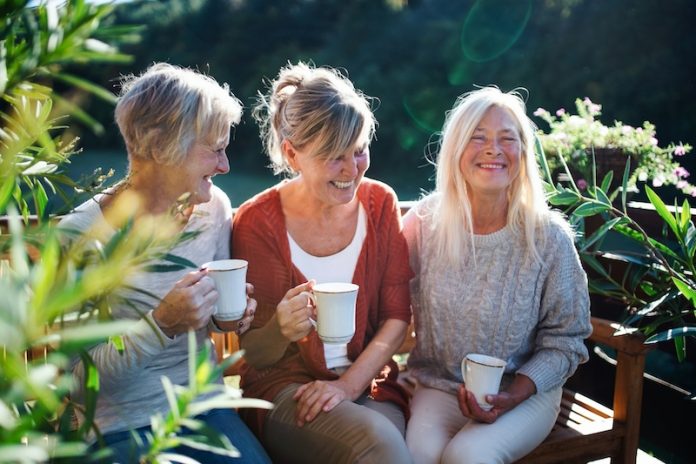
Dementia affects millions of people worldwide, causing memory loss, confusion, and difficulty with daily activities. While there’s no cure yet, research shows that staying socially active can help slow its progression and improve quality of life.
Social activities keep the brain engaged, reduce feelings of isolation, and boost emotional well-being—all of which are important for brain health.
One key finding is that social interaction stimulates the brain in ways that other activities cannot. Engaging in conversations, playing games, or participating in group activities challenges the mind to process information, recall memories, and think critically.
A 2020 study published in The Lancet found that people with dementia who regularly participated in social activities had slower cognitive decline than those who were socially isolated.
The researchers believe this is because socializing keeps neural connections in the brain active and reduces the loss of brain cells.
Simple activities like joining a book club, attending community events, or playing group games such as bingo or card games can make a big difference. Even casual chats with friends, family, or neighbors help stimulate the brain.
For people with more advanced dementia, structured activities like art therapy, music sessions, or reminiscing groups are effective ways to engage socially while offering emotional comfort.
Intergenerational activities, where older adults interact with children or younger people, have shown promising results as well.
A 2018 study found that programs pairing people with dementia and school-aged children improved cognitive and emotional health for the older participants. These activities often involve storytelling, simple games, or shared hobbies, which can spark joy and keep the mind active.
Another beneficial activity is volunteering or participating in community service. For those in the early stages of dementia, helping others provides a sense of purpose and keeps them socially connected.
A 2019 review highlighted that volunteering reduces feelings of loneliness, which is closely linked to faster cognitive decline.
Physical activities done in a group setting, like dance classes or walking clubs, combine the benefits of socializing with physical exercise.
Exercise itself has been shown to slow dementia progression by improving blood flow to the brain, but adding a social element makes it even more effective.
A study from 2021 found that group exercises for people with dementia led to better mood, improved cognitive skills, and stronger relationships with others in the group.
For those unable to participate in in-person activities, virtual interactions can still be valuable. Video calls with friends or family and online group activities, such as trivia games or virtual music sessions, offer similar brain-stimulating benefits.
During the COVID-19 pandemic, researchers found that older adults who stayed connected through technology experienced less loneliness and slower cognitive decline than those who did not.
Social activities also have a powerful effect on mental health, reducing symptoms of depression and anxiety that often accompany dementia.
A 2017 study showed that people with dementia who engaged in regular social interaction reported higher levels of happiness and reduced stress compared to those who were isolated.
Since mental health and brain health are closely connected, improving emotional well-being can indirectly protect cognitive function.
Caregivers play an important role in supporting social engagement. Encouraging loved ones with dementia to participate in activities and providing companionship can make a big difference.
Even small efforts, like taking a walk together or looking through photo albums, can help maintain connections and stimulate the brain.
Staying socially active is not a cure for dementia, but it’s a powerful tool for slowing its progression and enhancing quality of life. Whether it’s joining a club, chatting with loved ones, or participating in group exercises, social activities keep the brain engaged and improve emotional health.
For people with dementia and their caregivers, staying connected to others is one of the most effective—and enjoyable—ways to fight back against the challenges of the condition.
If you care about brain health, please read studies about vitamin D deficiency linked to Alzheimer’s and vascular dementia, and blood pressure problem at night may increase Alzheimer’s risk.
For more information about brain health, please see recent studies about antioxidants that could help reduce dementia risk, and epilepsy drug may help treat Alzheimer’s disease.
Copyright © 2024 Knowridge Science Report. All rights reserved.



